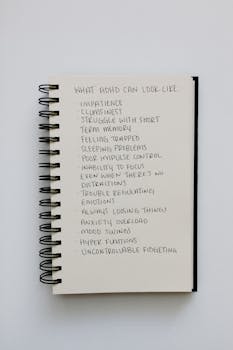What is emotional regulation?

What is emotional regulation?
Emotional regulation is a crucial skill that significantly impacts our daily lives. It’s the ability to manage and respond to your emotions effectively. Understanding and mastering emotional regulation can enhance our productivity, well-being, and personal growth. Imagine being able to navigate life’s challenges with a balanced emotional state; this is what emotional regulation allows you to do.
Understanding Emotional Regulation
Definition of Emotional Regulation
At its core, emotional regulation refers to our ability to control and influence our emotional responses. According to the APA Dictionary of Psychology, it involves the processes we use to monitor and evaluate our emotions, as well as the strategies we employ to modulate them. This skill allows us to adapt to our environment and respond appropriately to various situations.
The Importance of Emotional Regulation
Why is emotional regulation so critical? For starters, it plays a vital role in our mental health. Poor emotional regulation can lead to anxiety, depression, and stress. By managing our emotions effectively, we can improve our overall well-being. Research has shown that individuals with strong emotional regulation skills tend to experience higher levels of happiness and success in life. Furthermore, effective emotional regulation enhances productivity by helping us focus on tasks without being sidetracked by overwhelming feelings. You can explore more about the importance of emotional regulation in this Medical News Today article.
Components of Emotional Regulation
Emotional regulation consists of several key components that contribute to our ability to manage our emotions.
Awareness of Emotions
The first step in emotional regulation is being aware of your emotions. This means recognizing what you feel and understanding why you feel that way. Awareness forms the foundation for effective emotional regulation. Without it, you can’t identify the triggers that lead to emotional dysregulation. Being mindful of your emotional state allows you to respond thoughtfully rather than react impulsively.
Cognitive Reappraisal
Cognitive reappraisal is another essential strategy for emotional regulation. It involves changing the way you interpret a situation to alter its emotional impact. For example, instead of viewing a challenging work project as a threat, you could see it as an opportunity for growth. This shift in perspective can lead to more positive emotional responses and reduce anxiety. Techniques for cognitive reappraisal are discussed in Psychology Today.
Expressive Suppression
Expressive suppression is the act of inhibiting your emotional expressions. While it might seem useful in some situations, it can have drawbacks. Suppressing emotions can lead to increased stress and negative impacts on mental health over time. It’s essential to find a balance—expressing emotions healthily while also knowing when to rein them in.
Strategies for Enhancing Emotional Regulation
There are several practical strategies you can implement to enhance your emotional regulation skills.
Mindfulness Techniques
Mindfulness plays a pivotal role in emotional regulation. Simple practices, such as deep breathing or meditation, can help you become more aware of your emotions and reduce reactivity. By focusing on the present moment, you can observe your feelings without judgment, making it easier to process and regulate them. For detailed mindfulness techniques, check out this resource on emotional regulation.
Developing Coping Skills
Having a set of coping skills is crucial for managing emotions effectively. Identifying your triggers and developing personalized coping strategies can make a significant difference. Techniques such as journaling, physical exercise, and creative outlets can help release pent-up emotions and promote a sense of peace. In fact, creating a list of activities that help you unwind can serve as a handy reference when emotions run high.
Seeking Professional Help
Sometimes, managing emotions can be overwhelming, and that’s okay. It’s essential to recognize when you might benefit from professional guidance. Therapists can provide tools and strategies tailored to your specific needs. If your emotions feel unmanageable, seeking help from a mental health professional can be a vital step toward better emotional regulation.
The Impact of Emotional Regulation on Productivity
Emotional regulation is closely tied to productivity. When we manage our emotions effectively, we can enhance our focus and motivation.
Emotional Regulation and Work-Life Balance
Effective emotional regulation contributes to a better work-life balance. By managing stress and anxiety, we can approach tasks with a clear mind, leading to greater efficiency. Additionally, learning to regulate emotions can foster healthier work relationships, as it allows for more constructive interactions with colleagues.
Emotional Regulation in Personal Development
Mastering emotional regulation is essential for personal growth. It enables us to face challenges head-on, improving our resilience. When we approach learning and self-improvement with a regulated emotional state, we are more likely to succeed in our endeavors. Developing effective study habits also hinges on our ability to manage emotions. If you’re interested in how emotional regulation can enhance your productivity, consider reading about it in this Harvard Business Review article.
Conclusion
Emotional regulation is a vital skill that can transform your daily life. By understanding its components and implementing effective strategies, you can enhance your well-being, boost productivity, and foster personal growth. Embrace the journey of emotional regulation and recognize its power in shaping a balanced and fulfilling life. Start today by practicing awareness and exploring various techniques that resonate with you. Remember, the path to mastering your emotions is a continuous journey, and you have the tools to succeed.